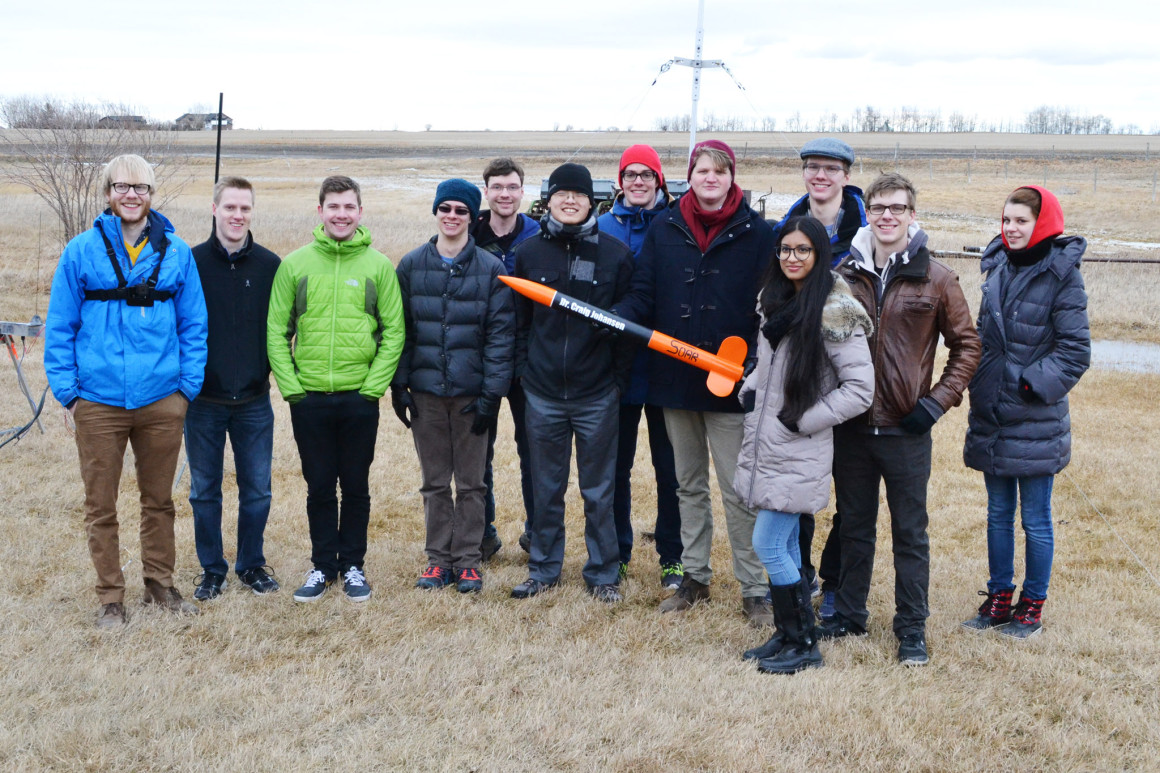
Rocketry club blasts off to international competition in Utah
By Scott Strasser, June 14 2016 —
The University of Calgary’s student rocketry club is in Utah to compete in the world’s largest intercollegiate rocket-launching competition.
Five members of the Student Organization for Aerospace Research (SOAR) are in Green River, Utah from June 15–18 to participate in the Intercollegiate Rocket Engineering Competition (IREC), an annual event put on by the Experimental Sounding Rocket Association.
The IREC marks SOAR’s first high-powered rocket launch. The roughly-30 member team held their inaugural launch in late April, when they sent their prototype rocket just over 1,000 feet into the sky. It reached a maximum velocity of about 360 km/h.
The club has been hard at work preparing for the IREC since the April launch. While that rocket used a class G engine, SOAR vice-president public relations Nathan Meulenbroek said the competition rocket will use an L engine, 32.3 times more powerful than the prototype.
If their competition launch is successful, SOAR’s rocket will break the speed of sound.
“We’re aiming for an altitude of exactly 10,000 feet and the rocket [to] reach more than Mach 1.1 during its burn time,” Meulenbroek said.
Now in its tenth year, the IREC is a keystone event for intercollegiate rocketry clubs.
“We provide an opportunity for students to design, build and fly rocket projects,” said IREC director of competition Matthew Ellengold. “We really emphasize student design and construction. Students have an opportunity to take things they learn in the classroom and apply them through hands-on experience.”
Ellengold said upwards of 60 rocketry teams will compete in this year’s IREC from universities around the world, including the U.S., Canada, Brazil, Egypt, Australia and Turkey.
“We’ve always had strong representation from Canada, but the branching out from North America is a recent development,” Ellengold said.
The IREC includes basic and advanced categories. In the basic category — which SOAR is competing in — rockets must carry a 10 pound payload and teams lose points for every foot above or below 10,000 feet that their rocket reaches.
Teams in the advanced category set an altitude between 10,000 and 23,000 and lose points for every foot above or below they are from that target. Teams are judged on both theoretical design work and flight performance.
Ellengold said competing in the IREC is a great opportunity for students interested in rocket launch engineering.
“It’s hard to find another forum like the IREC that centers on launch vehicles and rocket propulsion technology,” Ellengold said. “It’s a unique opportunity to come together and talk shop.”
Meulenbroek said SOAR’s goal is to eventually enter IREC’s advanced category.
“This flight is set to be a kind of beginner flight for future rockets,” he said.
